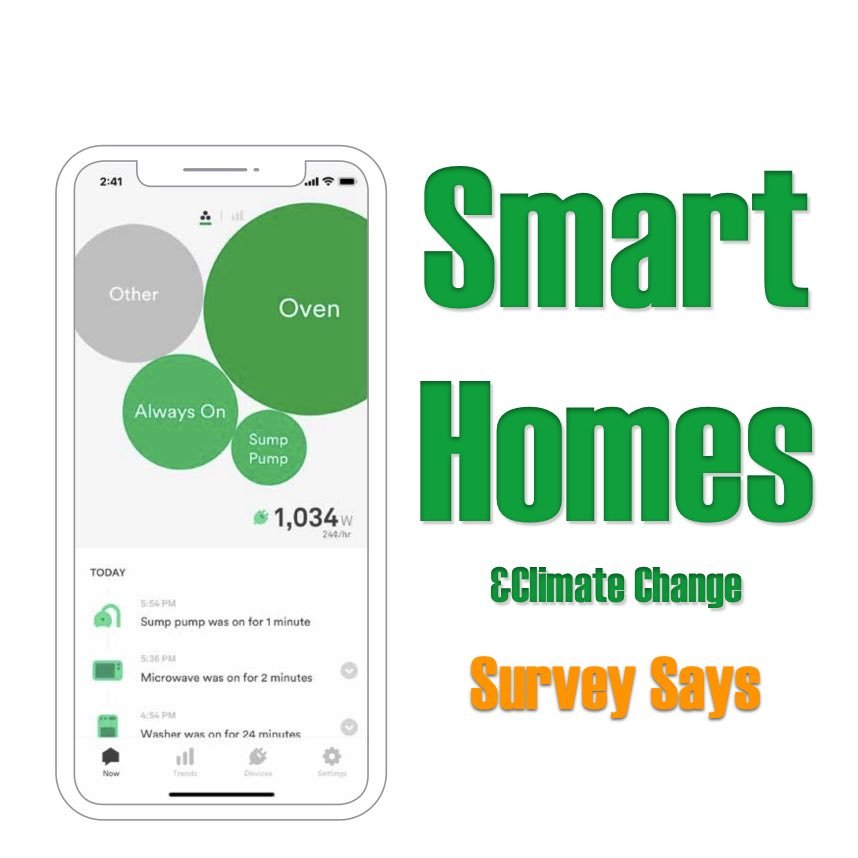By David Dodge, GreenEnergyFutures.ca
Survey after survey confirms Canadians care and worry about climate change but how many of us are investing in energy efficiency and smart home technologies?
That’s what Schneider Electric Canada wanted to find out, so they conducted a survey.
“Canadians are very, very passionate about climate change,” says David O’Reilly of Schneider Electric Canada. And “nine out of 10 Canadian homeowners are trying to do their best to minimize the impact on their environment.”
Test if font size
new

But when it comes to smart home technologies it turns out 98% of us have heard about them, but fewer than one in five are investing in energy efficiency and smart home technologies in our homes.
Indeed, homes and buildings are responsible for about 13% of greenhouse gas emissions.
Sure, many of us have dabbled with smart plugs, smart light switches, and other devices, but by themselves, these efforts are a little like swatting mosquitos to solve the mosquito problem.
In the early days of smart home devices, a plethora of devices came onto the market, but few of us really understood how to strategically use the devices to actually make a dent in energy use.

For O’Reilly, a more strategic approach begins with monitoring your electricity use.
“We found by doing this through our wiser home energy app customers were actually saving about 20% just by having better visibility into what they’re using day to day, which is a really, really fascinating thing for us.”
We’ve definitely heard this before at Green Energy Futures and we have documented spectacular examples of people dramatically reducing their energy use once they become aware of where it’s all going.
Schneider’s answer to this is the Wiser home energy monitoring system which connects directly to your electrical panel and monitors every circuit in the house.
“Then it monitors at an outlet level and it’s smart enough to be able to tell you whether it’s a refrigerator microwave or say a vacuum cleaner in the home,” says O’Reilly.
This knowledge alone helps consumers save up to 20% of their energy use, says O’Reilly. But in an extreme case, we have documented one household that reduced their energy use by more than 50% using this strategy.
Like many of us I love smart home technologies, but like most of us I used them for some pretty basic tasks; to turn the Christmas lights on or to turn my fish tank light on and off.
Ever since the emergence of these technologies I have imagined a day when I could manage everything in my home in an integrated system. This is hard with half a dozen brands that don’t talk to each other.
Whole-Home Energy Management – The Next Big Thing
Now imagine every light switch and plug-in in your home was part of a truly integrated smart home system. This is becoming much easier thanks to the evolution of the basic components of our electrical systems.
Schneider is coming out with a new series of smart plugs and switches that build smarts into the foundation of your electrical system.
But now we also need to get our homes ready for electric vehicles and solar systems and soon we will need to manage the way these things interact with the grid.
O’Reilly says Schneider is launching a home energy management system in 2023 that will be able to integrate solar systems, car charging, and the rest of your home energy system.
We think these integrated systems are going to help us all make the leap from dabbling to whole-home energy management.
We recently profiled DCBEL a Canadian company that has launched a totally integrated device that fast charges your electric car, has a built-in inverter for solar, and an AI-powered energy management system to manage your home and how it interacts with the grid.
“We have to be two and a half times more efficient, to reach our carbon goals by 2030,” says O’Reilly and he believes smart home technologies can play a role.
Schneider Electric is now working with home builders and home renovators to help integrate smart technologies from the ground up.

